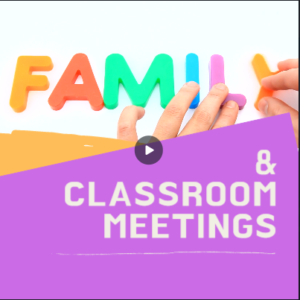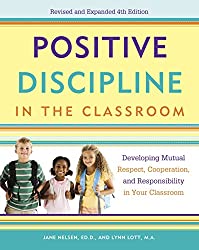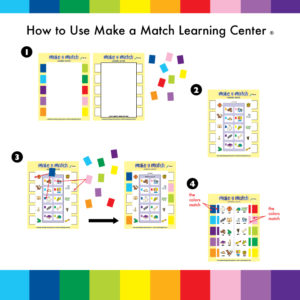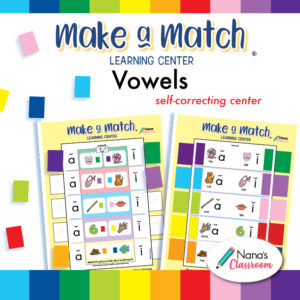
COUNTDOWN WEEK 1 – COMMUNICATION: Family & Classroom Meetings
 When I was in the classroom I had a class full of 4th graders and out of that class were at least 4-5 students that loved to rattle on complaining about the other students. About 99% of the complaints were just kid squabbles and maybe 1% was a valid issue. So, after years of using a Positive Discipline format family meeting at home with my four children, I decided to try it in my classroom. Now, let me tell you the miracle that happening within just a few weeks.
When I was in the classroom I had a class full of 4th graders and out of that class were at least 4-5 students that loved to rattle on complaining about the other students. About 99% of the complaints were just kid squabbles and maybe 1% was a valid issue. So, after years of using a Positive Discipline format family meeting at home with my four children, I decided to try it in my classroom. Now, let me tell you the miracle that happening within just a few weeks.
- Less and less we had trivial complaining
- More students were watching how they spoke and acted towards others
- We had fewer problems in and out of the classroom overall.
I know, I know what you are thinking, yeah right. Well, here is how the classroom (and family) meetings work.
- There was a format for the meeting
- During the meeting, respect was required, from each participant
- We always start with good things to share and complements
- People took turns speaking so everyone was heard and all comments are welcome as long as they are respectfully said
- The group/attendees/class/family decide on the punishments rather than the teacher/parent alone
- The family/classroom rules and bylaws are evolving but they are posted for all to see and abide by each week
- Everyone had a say in the rules and therefore valued them even more
So, this is what happened in the first meeting. We had an agenda and set out the rules of participation above.
The kids were brutal on one another, deciding that someone had to sit out their recess for the week because he or she was not fun to be around and was disrespectful on the playground. Another child needed to eat lunch alone for a week because he/she was too loud and mean at lunch and got the others in trouble.
Wow, I would have never given out such stiff punishments, but the classroom/family was quick to nip those bad behaviors in the bud. Plus, they were honest and open about how the other person’s behavior impacted others and how it made them feel. I saw children sticking up for others, children demanding accountability, and children finally having a voice against the children that needed to hear how their behavior made others feel. Those first three meetings were a lot about complaining and setting rules.
But by week four the magic started to happen. Kids were slowing down their trivial complaining and tattling, because right after the complaint, I would say, “Oh is this something we need to put on the agenda for the class to discuss, or can you all work something out among yourselves?” And quickly they decided they would work it out on their own, they did not want to get the class involved. Also, since they had set new rules themselves, they were now following the rules more and communicating with each other better, less fighting, and less tattling.
So, at our meetings we started to hear more and more about the good things happening, more compliments were coming and even more, people were being included rather than excluded because the class/family started to realize how the other person felt. There was more and more empathy, compassion, and seeing that consequences were based on your actions. Amazingly, we even saw a reduction or complete elimination of any type of bullying because they knew it would end up on the agenda, and the others were standing up for one another more, seeing one another situation more, taking responsibility for others more and these were all results from our meetings.
Finally, after about six weeks of meetings and refining the rules, we started to work on some fun things and projects we wanted to do because the class was now working together more, and fewer and fewer issues were coming up and communication overall was better. They started to feel pride and accomplishment and now wanted to help others and enjoy more fun time together. So, if you have a family, especially with children you might consider, especially right now to start a family meeting. I promise if you focus on the good and set a positive tone, this action can change a family or a classroom for the better.
Here are the basic rules but remember, this can evolve based on what your family wants to do each week.
Attached is a two-page guide to help you get started with your first family or classroom meeting. I would encourage you to create your own with your own rules book involving the meeting members in the process. They can refer to the book, rules, plans at any time for review or verification.
Format
- Set a time to meet on the calendar so that everyone can attend
- The meeting must be respectful at all times (I usually teach about respect in the first meeting)
- The agenda items for discussion that week must be posted the night before the meeting
- Open the meeting with the “good things” happening. If you have a compliment jar, read one or two compliments from that week. Even some of the toughest kids like to be told what positive things they are doing and get some praise. This action of giving compliments can bring out shy children as well, especially when they are talking about others.
- Then, set the ground rules for talking, one at a time (some people like to have a ball or microphone to use so that the person holding the item is clearly the person talking.)
- Document and discuss consequences and solutions to issues on the agenda. It is so funny when a family grounds a family member it is so much more powerful than when a parent has to decide. It is a family thing, no longer the “mean” parent thing.
- Finally. discuss something fun that you could do after the next week or as a family project and end on a positive, or a fun note by doing the fun event from the planning at the last meeting.
- Do that activity together as a family; movie. play a game, play video games, dance, outside events, and more. Start a list suggested by each family member so that all have a say.
- The overall goal of the meeting is to clear the air, teach respect, and let everyone have a role in the rules, consequences, and deciding on the fun. When people young or old feel a part of something, and feel heard and respected they want to participate and support more of this behavior…they feel more a part of the family.
- The last and most important outcome of the meeting is communication. You will find out more and more from others as they see that they are not being judged. Problems will be discussed, questions will be answered, people will develop their own sense of self, and you will feel a part of the family, rather than always being the enforcer and rule maker. Be prepared, communication breeds more communication and creative ideas. I can’t wait to hear about your meetings and positive experiences.
Good luck with your FAMILY or CLASSROOM meeting!







